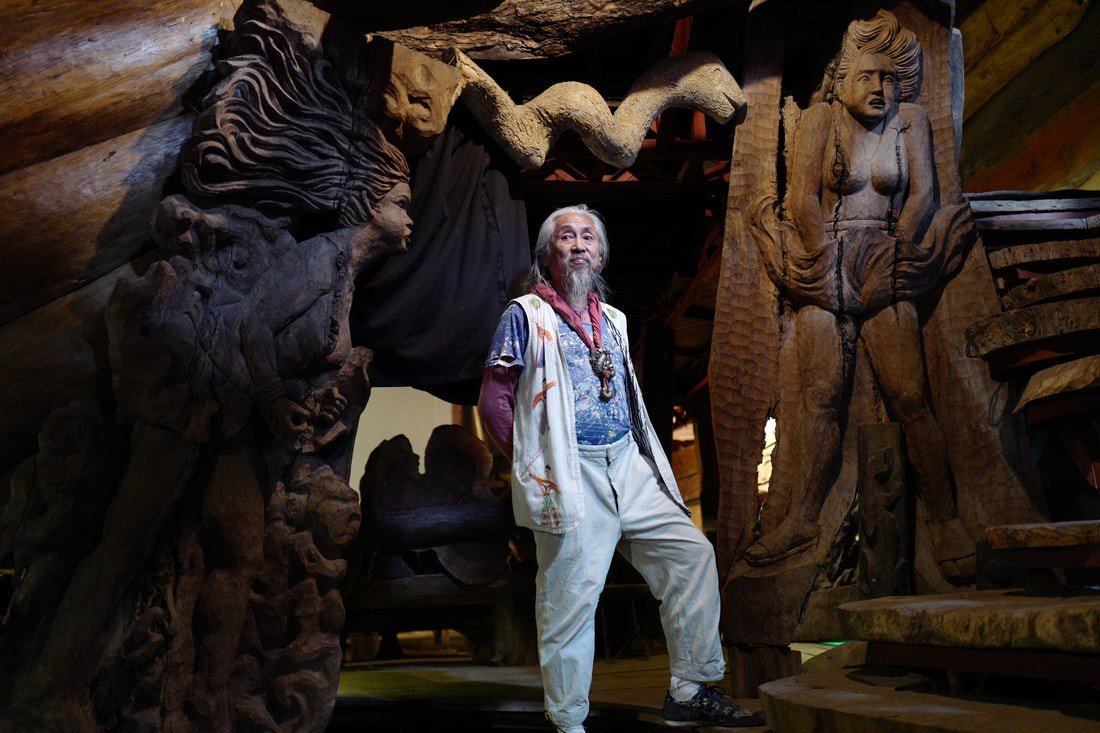
What happens when creative contribution remains unseen?
By Trinity Yeung
August 11, 2021
On June 29, the Creative Futures virtual conference culminated with closing remarks headed by renowned filmmaker and national artist, Kidlat Tahimik. Hailing from Baguio, one of Philippines’ two UNESCO creative cities, Tahimik is a celebrated figure in the Filipino arts – an eminent mover in the country’s independent cinema movement, known for titles such as Perfumed Nightmare and Turumba. Widely praised for his distinct storytelling, the filmmaker defies traditional genres, weaving fable, history, and reality into pieces of excellence that continue to be celebrated today.
Tahimik, a self-taught filmmaker, previously worked a corporate job with a master’s degree from the Wharton School of Business in the University of Pennsylvania. He eventually grew disillusioned with the flow of the industry and proceeded to renounce his birth name, thus began acknowledging himself with the title he is identifiable with today. The commanding quality to his name is reflected upon his work, which is laced with the hymn of Third Cinema principles — a film movement originating from Latin America, decrying neocolonialism and consumerist behaviour by molding it as a vehicle for political messaging. His stories play on themes involving historical truths and cultural allegory, fusing both to narrate a prose ultimately speaking one tale: the robust foundation of creativity in the land of his people.
Tahimik has long been an ally of the Filipino creative industries, at one point being a core supporter of the Baguio Arts Festival. The onslaught of the 1990 Baguio earthquake put a cease to the festival as his peers deemed it illogical to hold an event in the wake of a calamity. Tahimik, on the other hand, believed otherwise, sensing the urgency of art during a time of unrest. “Whether you consider it worth it or not is really a matter of [quantifying] the results of an activity. That is really the question: What is the contribution of the Baguio Arts Festival or any cultural event to the lives of the people [in] a city?”
For Tahimik, the fate of a creative-led future lies in the hands of those who have the means to support it: the policymakers, budget makers, and local government units. Yet, many remain adamant in sustaining the arts, going back to a pervading and overshadowing question: Is it profitable? Tahimik calls this the “MBA” question. “Sometime in your life, perhaps when you were young or about to graduate high school, you thought about what you wanted to pursue in life, then the MBA question comes out: ‘What degree will you take? Will it pay the bills?’"
The prioritization of profit has ultimately led to the marginalization of arts and culture in the country with many failing to realize its continual and vital hold over the country’s identity. For Tahimik, the work of artists remains hidden in the shadows, likening it to gender disparity. “The contribution of artists is invisible because it’s not always quantifiable,” he stated. “It’s a little similar to issues of gender where a housewife’s contribution to an economy can’t be quantified in the same way a husband’s monthly wage can.” Tahimik points to a similar situation experienced by indigenous cultural workers, who, in the eyes of the Filipino public, only work steadily in the background.
Tahimik continues to lament on the need for a cultural ministry in the country, sensing this to be directly correlated to how people value the arts and culture, which is in need of sustenance now more than ever.
To combat its potential demise, there needs to be efforts to build it back up. Tahimik rallies government bodies to re-adjust their stance and see the arts and culture industries for what it truly is: a trove of underutilized potential. “[The government needs] to make an effort to see these [invisible] contributions and equate them with the development of our communities in the long-run.”
In a kismet-like ode to his name, his words, though softly delivered, are heard through octaves that transcend the often grim prospects of the creative industries. He ends his speech on an important note.
“We should balance our material measurement as policymakers,” Tahimik stated. “Where we put our money or what we consider a successful investment must include the spiritual benefits of recognizing where we come from.”


